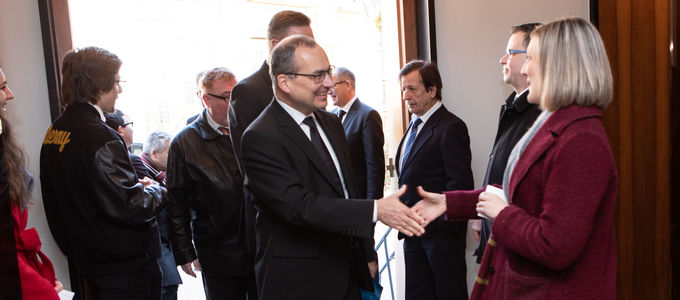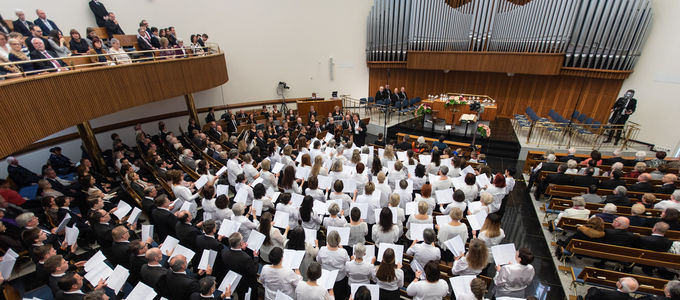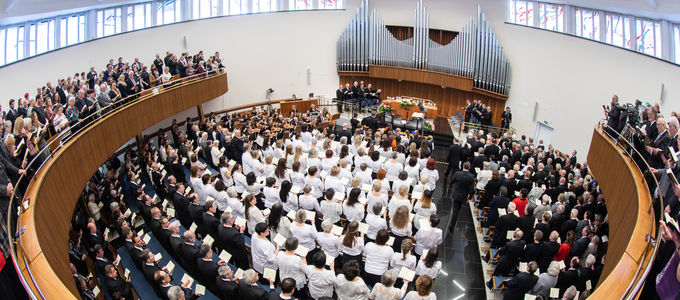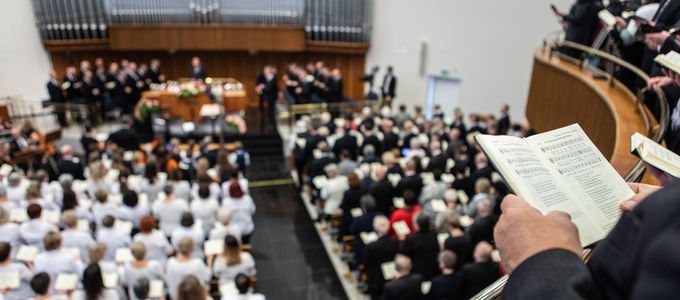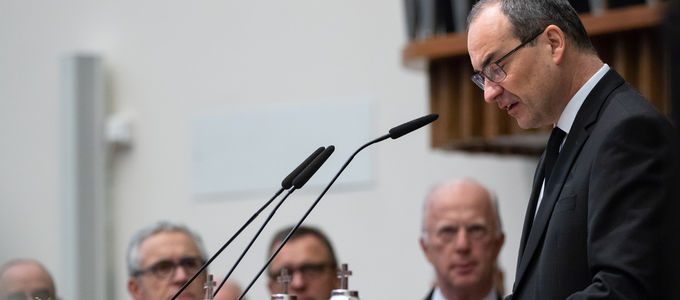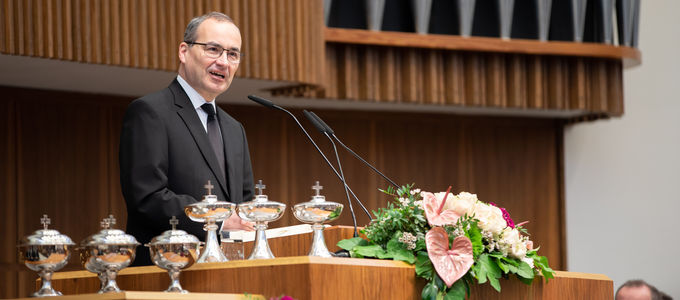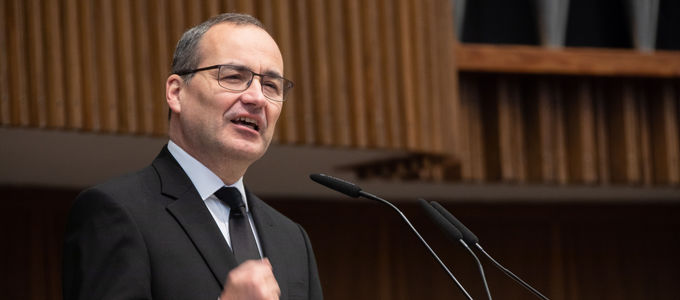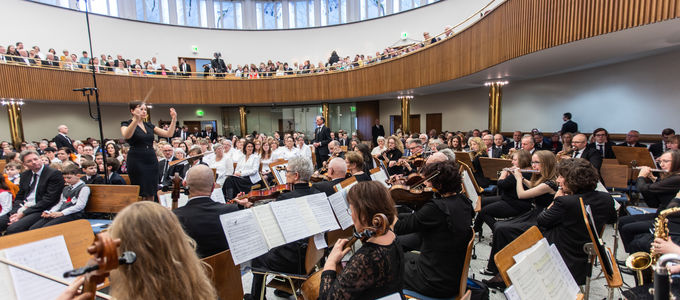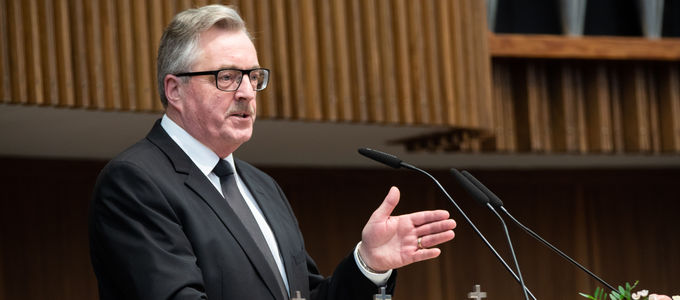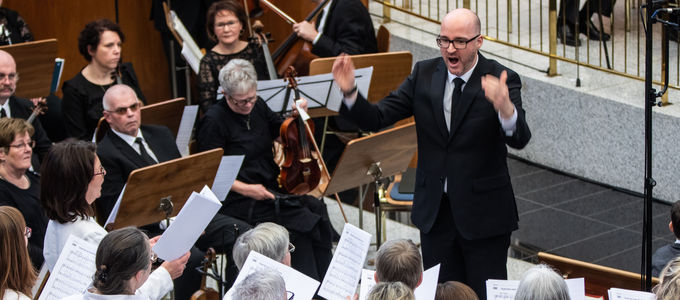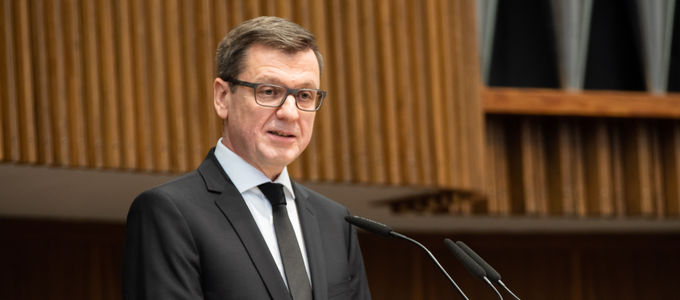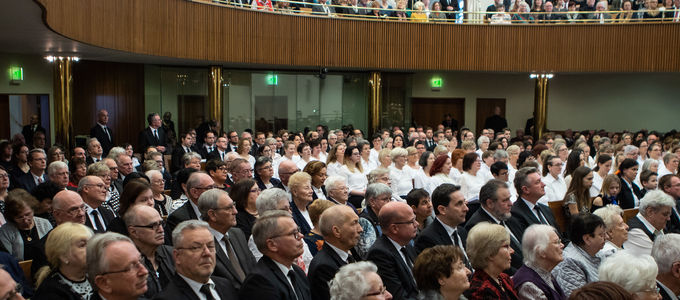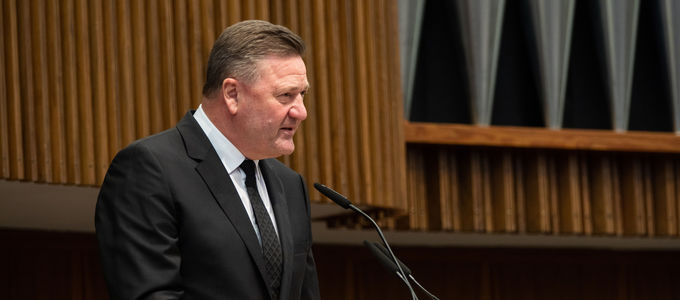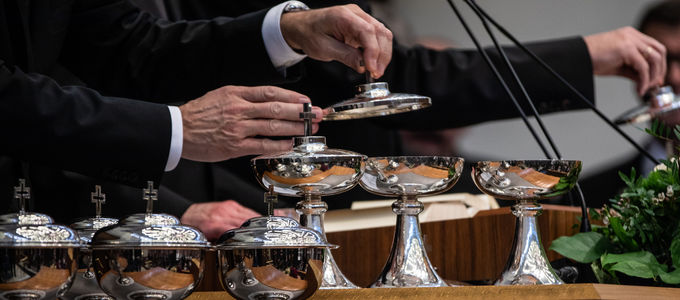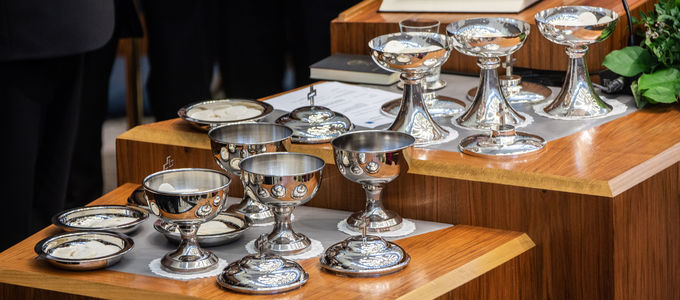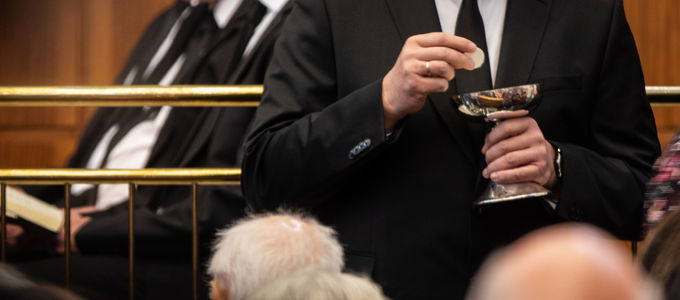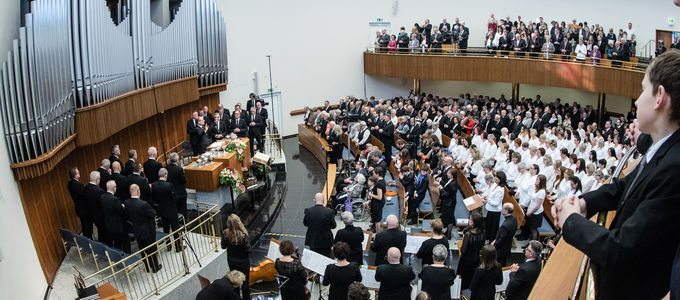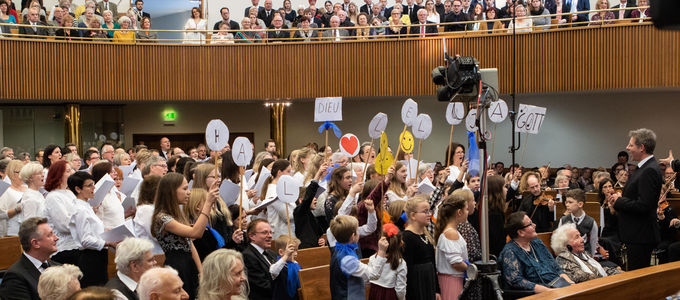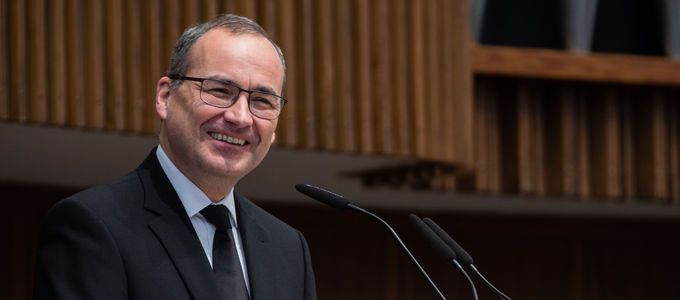Some truths from a reliable source
A Bible text, three images, many springs, and a cycle. When it comes to blessing there is certainly no dearth. Ideas galore from a divine service by the Chief Apostle.
The Bible text for this divine service in Wiesbaden (Germany) on 20 January 2019 was taken from Joshua 15: 19: “She answered, ‘Give me a blessing; since you have given me land in the South, give me also springs of water.’ So he gave her the upper springs and the lower springs.”
Here is the biblical context. Caleb, one of Moses’ scouts, gave his daughter a piece of land for her wedding. Situated on slope, it was very dry so that she asked her father for springs as well.
Chief Apostle Jean-Luc Schneider used this story as an image for the blessing of God. “He gives us the springs of blessing: the upper and lower springs.” But what exactly is blessing? “God’s blessing is the salvation He offers us. God’s blessing is everything that contributes to eternal life.”
The upper springs
“The upper spring of blessing—the source of salvation from heaven—is Jesus Christ,” the Chief Apostle pointed out. “Thanks to His merit, His election, the sacraments, His word, and His activity we have salvation.” But there is nothing automatic about this. This image, this spring, implies: one has to go there and draw water.
- Going there means: “In order to obtain salvation, one must come to Jesus Christ in faith. One must go to the source, to the spring, and walk the path of faith, the path of repentance, and the path of regret.”
- To draw water means: “If the sacraments are to be truly effective and unfold in us, we must develop the following attitude: I want to renounce sin; I want to overcome evil; I want to have fellowship with God; I want to belong to the bride; I want to enter into the kingdom of God.”
The lower springs
“God has also given us the lower springs,” the Chief Apostle continued.
- Our strengths and abilities. “If we commit ourselves to our salvation, if we put our gifts, our strengths, and our abilities at the service of God, they will become a source of blessing.”
- The Apostles and ministers: “If we turn to them to help us create our salvation, to make the right decisions for our soul, then we can find the strength, consolation, and love we need. But we must go there and draw strength from this source.”
- The congregation: “In order to be able to benefit from the inherent wealth of the congregation, we must first of all invest in it. If you want to be loved, love first. If you want to seek help, start by helping your neighbour. If you are looking for love and attention, start by turning to others first.”
The cycle of blessing
“Blessings from below, blessings from above. I see yet another beautiful image: a cycle of blessing,” the Chief Apostle said. God blesses man, and man blesses God.
“We know that God has blessed us: through the upper spring and the lower spring,” the Chief Apostle said. In return we bless God: we trust Him, we thank Him, and we serve Him.
What’s more, we want to be a source of blessing for our neighbour. “Because God’s blessing is so great, and we can recognise and appreciate it, we also want to pass it on and share it.”
In happiness and misfortune
A spring on the mountain and in the valley, in the highs and lows of life. “This too is a beautiful image. The source of blessing, of salvation—Jesus Christ—is active when we are happy, but also when we have reached rock-bottom and are very sad.”
“Our suffering, difficulties, and trials will never be so great that God would have to say, ‘I can no longer help you,’” Chief Apostle Schneider made clear. “Whether things are good or bad for us: we always have a reason to praise Jesus Christ for the salvation He gives us.”


